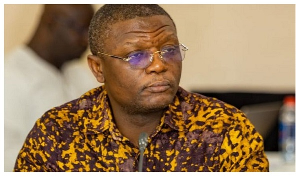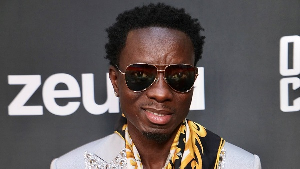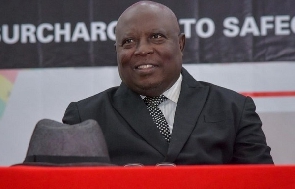Orangeburg, South Carolina
19th March, 2014
The ill-conceived and mistaken calls for the legalization of marijuana must cease—for the good of Ghana.
Last week, the Executive Secretary of the Narcotics Control Board, Mr. Akrasi Sarpong, called for a national debate on the legalization of marijuana. His call was during a BBC interview, during the release of the 45th Annual Report of the International Narcotics Control Board (INCB), in Accra. Mr. Sarpong told the BBC’s Sammy Darko that the war on marijuana in the country is lost because “what you are fighting is not crime. Reports say that marijuana is the number one problem in Africa so what are we saying. People laugh at these things because they are growing them in their homes.” He continued “I believe it’s being used in primary schools, it’s being used in secondary schools, being mixed with shito and university students are smoking it. Post-graduate students and people who are working are smoking it so what are we talking about?” According to Eugenia Tenkorang’s report on Citifmonline, the NACOB boss said he is personally against it but government can generate revenue by legalizing it. Surprisingly, before this interview, in his official remarks at the launch of the report, Mr. Sarpong had called marijuana a grave danger and warned that it “would colonize us” if nothing was done. He should have stuck to his official remarks. From his BBC interview, it is obvious that Mr. Sarpong leans towards legalization of marijuana.
It is sad that nearly half-a-century after the colonialists left, they still do most of our thinking for us. Is it not surprising that just after Colorado’s high profile legalization of medical marijuana and President Obama’s remarks implying some sympathy for legalization, we are marching to legalize marijuana? The same thing happened with the legalization of gay marriage. As soon as the Americans said it was the right thing to do, many African leaders started echoing them. While I believe that the rights of all citizens should be protected, we should not abandon the centuries-old definition of marriage just because the West is doing it. Certainly, there is a lot of things America and the West does that we can and must aspire to, including their commitment to:
• transparency and accountability in governance
• the “rule of law”
• accepting new and younger leaders in their political process
• the material needs of the poor
• The use of data and analysis in decision-making
Unfortunately, we disdain these positive examples but are eager to copy their mistakes.
Have we really been waging a “war” on marijuana? How much have we spent on it? Where is the public education campaign against it? Where are the treatment facilities?
Here is my argument.
First, should we legalize whatever we cannot stop? Does this mean that we must legalize corruption, prostitution and murder that have been with us since the beginning of time because we can never eliminate them?
Second, marijuana, while it has some medical uses, has many down-sides.
It is the gate-way drug to many other drugs of addiction and its use leads to impairments that fuel increases in crime, accidents and social ills.
Indeed, the International Narcotics Control Board has called the changes to marijuana laws in the US and Uruguay a “very grave danger to public health.” It called the changes “misguided initiatives” that fail to comply with the 1961 International Narcotics Convention. The INCB report said the introduction of medical marijuana access program in Colorado has led to an increase in marijuana-related treatment admissions as well as car accidents where the drivers were under the influence of marijuana. The President of INCB, Raymond Yans, warned ominously that “Drug traffickers will choose the path of least resistance, so it is essential that global efforts to tackle the drug problem are unified. When governments consider their future policies on this, the primary consideration should be the long-term health and welfare of the population.”
Third, the argument that legalization will lead to decreased use and improved safety is bull. Despite alcohol being legal, it caused 2 million arrests in the US last year, compared with 1.6 million arrests for all illegal drugs.
Fourth, which of us as responsible parents will offer their child the first puff of marijuana in good conscience?
Fifth, is it moral to have a nation of people, from primary school to post-university, stoned on marijuana? Where shall this slippery slope lead? The legalization of cocaine?
Finally drugs are an important issue whose scope is increasing by the day. As I warned in my book, “THE DRUG INVASION OF WEST AFRICA”, it has the potential to destroy our societies as we know them. Let our governments not serve as the advance forces of the drug cartels by legalizing marijuana.
Let us fight marijuana and all other illegal drugs—together.
Arthur Kobina Kennedy
Opinions of Friday, 21 March 2014
Columnist: Kennedy, Arthur Kobina


















